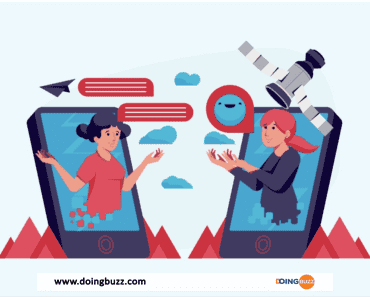How To Improve Sales With Enhanced Conversational Marketing

In today’s business world, competition is fierce. Standing out and making a sale requires going beyond traditional marketing tactics. This is where conversational marketing comes in. It’s all about creating a two-way dialogue with potential customers, building relationships, and ultimately driving sales.
Conversational marketing revolves around the idea of fostering meaningful interactions with potential buyers. Unlike one-sided promotional messages, conversational marketing emphasizes two-way communication and relationship building. It’s all about engaging customers in personalized dialogues tailored to their specific needs and preferences.
What is Conversational Marketing?
Conversational marketing is a shift away from one-sided messaging and towards genuine conversations. Imagine it like having a friendly chat with a customer, understanding their needs, and offering solutions that fit them perfectly. This personalized approach fosters trust and builds lasting relationships, leading to more sales.
At its core, conversational marketing is about listening to customers, understanding their needs, and providing relevant solutions. It’s a departure from the one-size-fits-all marketing tactics of the past, instead opting for tailored conversations that resonate with each prospect on a personal level.
What Are The Conversational Marketing Techniques to Increase Sales
Here’s how you can leverage conversational marketing to boost your sales::
-
Live Chat
Imagine a friendly salesperson popping up on your website, ready to answer your questions. That’s the magic of live chat! It allows you to connect with website visitors in real-time, address their concerns as they browse, and guide them towards a purchase. Don’t be afraid to be proactive with chat outreach – sometimes a simple « Hi there, can I help you find anything? » can be the spark that ignites a sale.
-
Chatbots
Think of chatbots as tireless assistants who can handle basic conversations 24/7. They can qualify leads by asking a few questions, answer frequently asked questions (FAQs), and even schedule appointments. This frees up your sales team to focus on more complex interactions.
-
Social Media Engagement
Social media platforms are buzzing with conversations, and your brand should be part of them! Respond to comments and messages promptly, answer questions in a helpful and friendly way. By engaging with your audience, you create a sense of community and build brand loyalty. Remember, happy customers are more likely to buy from you.
-
Personalized Email Marketing
Gone are the days of generic mass emails. Conversational marketing champions personalization. By segmenting your email list and using dynamic content, you can tailor emails to individual needs. Imagine sending an email with product recommendations based on a customer’s past purchases – that’s powerful! Emails are also a great way to nurture leads and continue conversations even after a website visit.
-
Conversational SMS Marketing
Move away from sending one-way messages and instead engage in two-way text conversations with customers using conversational SMS marketing. Utilize bulk SMS marketing software to customize messages, establish credibility, and enhance interaction. This interactive strategy can lead to increased sales by providing real-time communication, special promotions, and relevant content sent directly to their phones.
Why Is Conversational Marketing Important
Just like any successful sales strategy, conversational marketing needs a plan. A well-defined strategy ensures consistent messaging across all communication channels, creating a smooth customer journey. Here’s why a strategy matters:
-
Buyer Personas
Understanding your ideal customer (buyer persona) is crucial. Tailor conversations to their specific needs and pain points. For example, if you sell fitness equipment, your conversation with someone just starting their fitness journey will look different from one with a seasoned athlete.
-
Metrics and Data Analysis
Don’t just chat blindly! Track key performance indicators (KPIs) like response times, lead generation, and sales conversions. Analyze customer feedback to see what’s working and what needs improvement. This data allows you to constantly refine your approach for maximum impact.
-
24/7 Availability
Customers today expect instant gratification. Conversational marketing tools like chatbots can provide around-the-clock support and answer basic queries, even outside of business hours. This enhances customer experience and reduces frustration.
-
Increased Engagement
Conversational marketing allows you to connect with customers on their terms, providing a more engaging experience than static ads or impersonal emails. People are more likely to respond to a question or participate in a conversation than simply click on a banner.
How Do You Implement Conversational Marketing for Sales Growth
Now that you understand the power of conversational marketing, let’s get tactical! Here’s how to put it into action:
-
Choosing the Right Channels:
It emphasizes understanding your target audience’s preferred communication channels. This could be Facebook Messenger, live chat on your website, or anything else they actively use. By identifying these channels, you can directly engage with them where they’re comfortable.
-
Training Your Team:
The passage highlights the importance of a well-trained sales team for conversational marketing. They act as the frontline, so strong communication skills are crucial. This includes active listening, asking insightful questions, and building rapport with potential customers to foster a positive interaction.
-
Leveraging Technology:
Marketing automation tools and CRM systems are valuable assets for conversational marketing. These tools can help manage numerous conversations efficiently, automate repetitive tasks like sending greetings or scheduling follow-ups, and provide valuable data and insights into customer behavior and preferences.
-
Continuous Improvement:
The passage emphasizes that successful conversational marketing is an ongoing process. It’s essential to track key performance indicators (KPIs) like conversion rates or customer satisfaction. You should also analyze customer feedback to understand their needs and preferences better. By continually monitoring results and adapting your strategy, you can ensure your conversational marketing efforts are effective and meet your target audience’s needs.
Conclusion
Today, in the busy world of marketing, conversational marketing provides a unique and powerful way to engage with potential customers. Focus on meaningful dialogues, personalization, and selecting the best communication platforms to transform discussions into successful transactions.
Keep in mind that conversational marketing requires consistent effort. By monitoring outcomes, integrating customer input, and consistently refining your strategy, you can harness the potential of dialogue to boost sales and establish enduring customer connections.
Frequently Asked Questions (FAQs)
- What is an example of conversational marketing?
Imagine shopping online and instead of a sales pitch, a chat pops up asking about your needs. It guides you with questions and suggests options based on your answers, all in a friendly conversation. That’s conversational marketing in action!
- What is the concept of conversational marketing?
Conversational marketing lets you chat with customers in real-time on their preferred channels, like messaging apps and website chat. This uses AI to understand their questions and needs, so you can guide them through their buying journey with helpful conversations.
- How do I scale conversational marketing?
To scale conversational marketing, leverage chatbots to answer basic questions and qualify leads, then personalize interactions using customer data and website behavior. Track conversations to improve chatbot scripts and target messaging, all while offering conversation options across multiple platforms for maximum reach.







